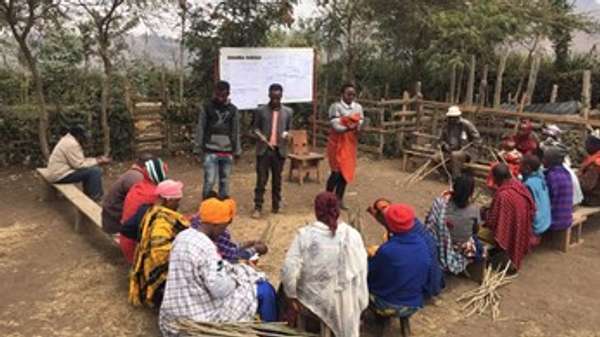The essence of Farmers Field School (FFS) is a group of farmers who use their own field, or fields, as a real-world classroom. They meet regularly, usually with the guidance of a facilitator, and carry out experiments designed to test potential innovations which they have chosen like new varieties, new management systems, etc. The role of the facilitator is not to teach or provide answers, but rather to help the group identify their priorities, conduct trials, and came up with their own solutions and conclusion.
ECHO East Africa organized FFS in nearby villages so as enable smale scale farmers learn best practices of sustainable integrated agricultural practices so as to increase yields and ensuring food and nutrition security from the household up to the community level.
FFS trainings are conducted in nearby villages in which different techniques related to sustainable agriculture, conservation agriculture, environmental conservation practices and promotion of green manures/cover crops are taught during different trainings schedule.
Seven groups of small-scale farmers were impacted by trainings provided during farmers field schools at Lengijave, Ekenywa, Losikito, Lemanyata, Likamba, and Kilimamoto villages.
Groups were taught the following topics:

Farmers Field School group attended a training at their village
- Principles of conservation agriculture
- Use of green manures / cover crops
- Environmental conservation and tree planting
- Crop Residue Management
- The poison that affects maize crops (aflatoxin)
- Improving nutrition through production and use of perennial vegetables, especially Chaya.
These trainings were delivered to these groups in participatory approach between themselves and ECHO East Africa facilitators who managed FFS.
Most of the small-scale farmers who are part of FFS groups acknowledge the fact that they have been able to learn different best practices of Sustainable Integrated Agricultural practices; which contributed much to scalling up of their farms and consequently improved productivity, ensuring food and nutrition security at household level.